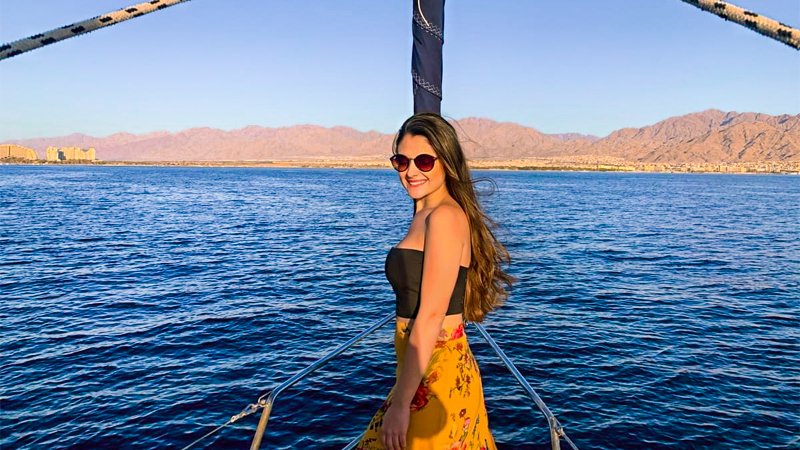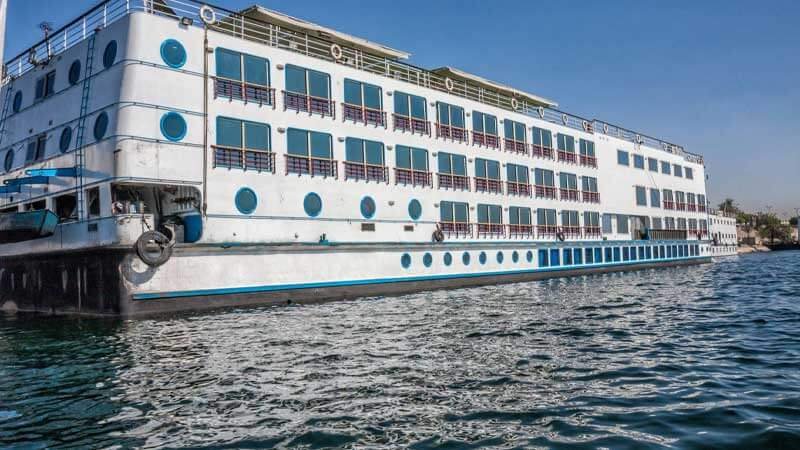Traveling to Egypt has always been a dream for adventure seekers and history enthusiasts alike. This land of ancient wonders, breathtaking landmarks, and vibrant culture offers a unique experience that captures the imagination of travelers worldwide. However, the question often arises: “Is it Safe to Travel to Egypt?”
In this comprehensive guide, we will address your concerns and provide valuable insights, tips, and information to help you make an informed decision about your journey to this captivating destination.
Egypt, nestled in North Africa, is steeped in history and wonder. Home to iconic treasures such as the pyramids, the Sphinx, and the Nile River, this nation boasts a rich cultural heritage that beckons travelers from across the globe. From the bustling markets of Cairo to the serene temples of Luxor, Egypt offers an array of awe-inspiring and unforgettable experiences.

Is it safe to travel to Egypt?
Egypt’s rich history has lured adventurers for centuries, but concerns about safety naturally arise when planning a trip to a destination with its unique challenges. Nevertheless, Egypt has implemented substantial measures to bolster security and ensure the well-being of its visitors.
Popular tourist areas such as Cairo, Luxor, and Aswan are diligently guarded and monitored by authorities. The Egyptian government prioritizes tourism and has enacted various initiatives to uphold a safe environment for travelers.
- Safety Considerations: While Egypt generally remains safe for tourists, staying abreast of the current situation and adhering to local guidelines is prudent. Here are some safety precautions to bear in mind:
- Stay Updated: Stay informed about travel advisories and pertinent updates from reputable sources before and during your journey.
- Respect Local Traditions: Familiarize yourself with local customs and etiquette to avoid unintentionally causing offense.
- Steer Clear of Crowds: While political demonstrations are infrequent, it’s advisable to avoid crowded protests or gatherings.
- Guard Your Belongings: Exercise caution and vigilance with your surroundings, ensuring the security of your possessions as you would in any other destination.
Tips and tricks to avoid scams
Despite how safe Egypt is, I always warn travelers that Egypt has many scammers and con artists who target tourists. While it is important to keep in mind the situations that put people in the position of using dishonesty to make a living (wages in Egypt are abysmally low and tourism, the main source of income for thousands, virtually dried up after the 2011 Revolution), no one ever wants to waste time or money on someone being dishonest.
Check out my earlier blog post on common pitfalls to avoid in Egypt, where I go into scams in more detail. Here are some quick tips:
Book your trip through a reputable tour agency or guide, like us at Egypt Adventures Travel (we can also recommend honest, local guides!).
If traveling independently, keep Lonely Planet’s Egypt Guidebook handy at all times. Refer to your book for the most accurate information instead of relying on random people on the street.
It is not impolite to ignore anyone trying to talk to you (Egyptians do it all the time when someone is trying to sell them something they do not want!). If someone is really bothering you, walk away, and feel free to say “Luh, show-krahn” (“No, thank you.”) with finality.
Never, NEVER, EVER, agree to go with someone to their shop or store, unless you are with a trusted guide who recommends you go.
Do not believe someone when they tell you something is closed, unless they are a uniformed police or military officer, or the agent behind the ticket counter at a particular site.
Be especially wary when in Khan el-Khalilii, or any perfume, papyrus, or alabaster shop.
Negotiate prices for any services up-front. Try to hire a private driver or use Uber instead of taking normal taxis.
From someone who has traveled to Egypt for almost a decade, and spent two years living in Cairo, Egypt is one of the safest destinations U.S. tourists can experience, if they educate themselves on sexual harassment, and learn about some quick strategies to avoid time and money-wasting scams. Have you been to Egypt before, and did you feel safe? Share you thoughts in a comment below!

Is it safe to cruise the Nile?
Cruising the Nile is generally considered safe for tourists. Nile cruises are a popular way to explore Egypt’s iconic landmarks and historical sites while enjoying the comfort of a floating hotel. These cruises typically follow a well-established route between Luxor and Aswan, stopping at key attractions along the way, such as the temples of Karnak and Philae, the Valley of the Kings, and the Aswan High Dam.
Nile cruise operators prioritize the safety and security of their passengers. They work closely with local authorities to ensure that itineraries are safe and that security measures are in place. Additionally, many Nile cruise ships adhere to international safety standards and are equipped with modern amenities to ensure a comfortable and enjoyable experience for passengers.
However, as with any form of travel, it’s essential for travelers to exercise common sense and take precautions to ensure their safety. This may include staying informed about current events and potential safety concerns in the region, following the guidance of local authorities and tour operators, and being vigilant about personal belongings while on board and during shore excursions.
Overall, cruising the Nile is generally considered a safe and rewarding experience, allowing travelers to immerse themselves in Egypt’s rich history and culture while enjoying the scenic beauty of the river.
Why is it safe to travel with a travel agency?
Traveling with a reputable travel agency offers several safety advantages:
Expertise and Knowledge: Travel agencies have experienced professionals who possess in-depth knowledge about the destination. They can provide valuable insights, advice, and recommendations to ensure a smooth and enjoyable trip.
Itinerary Planning: Travel agencies meticulously plan and organize itineraries, including transportation, accommodations, activities, and meals. This minimizes the risk of encountering unexpected challenges or difficulties during the trip.
Local Support: Travel agencies often have local contacts and partnerships in the destination country. This means they can provide on-the-ground support, assistance, and guidance in case of emergencies or unforeseen circumstances.
Official Documentation: Travel agencies can help with obtaining necessary visas, permits, and other official documents required for travel. This ensures that travelers have all the correct paperwork in order, reducing the risk of encountering issues at immigration or border crossings.
Safety Measures: Travel agencies prioritize the safety and security of their clients. They stay informed about local conditions, potential risks, and safety protocols, and take appropriate measures to mitigate any potential hazards.
Emergency Assistance: In the event of an emergency, such as a medical issue or natural disaster, travel agencies can provide assistance and support to ensure the well-being of their clients. This may include arranging medical care, evacuations, or alternative travel arrangements.

